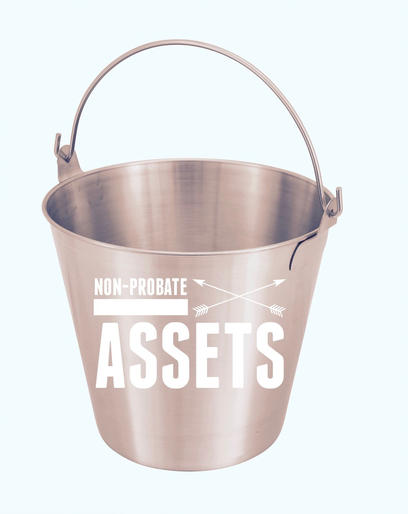How can I leave my affairs in order so that my beneficiaries don’t have to open up a probate case?
Leaving your assets in one of several ways can help your loved ones avoid opening a probate case and ultimately saving thousands of dollars.
Some of the methods don’t cost you a penny so pay close attention and make sure to take advantage of as many of these options as you can!
Life Insurance Policy, Annuity, IRA, 401K: All of these types of policies allow you to bypass opening a probate case to distribute the funds to your beneficiaries as long as you have a properly designated beneficiary. If you have not properly designated a beneficiary, or your designated beneficiary predeceases you and you have not named a contingent beneficiary, the funds can only be paid to your estate and your beneficiaries will need to open a probate case to collect and distribute the monies.
Bank Accounts: As long as you have listed a Payable on Death (POD) Beneficiary or name a joint account holder (not just a mere signer, but a true joint account holder), your account can be paid after you pass to your named beneficiary by simply having the beneficiary provide an original copy of the death certificate to the bank. Again, if your POD predeceases you and you have not named a contingent beneficiary, no banking institution will release the funds to your beneficiaries. Instead, an estate must be opened and the funds will be made payable to the estate.
Real or Personal Property: How you hold title to real and/or personal property has a significant impact on how it is held after one or more of the owners pass. In order for the property to descend to the other owner(s) without the necessity of probating the property, it must be held as joint tenants with rights of survivorship. Don’t know if this is how your property is titled? Give us a call to schedule a consultation and we can go over the title(s) to your property(ies).
Assets placed into a properly funded trust: During your lifetime, you have the option of creating a trust. A trust is a fiduciary arrangement that allows a third party, or trustee, to hold assets on behalf of a beneficiary or beneficiaries. During your lifetime, you can maintain control over the assets you place in a trust using a Revocable Trust. In the alternative, an irrevocable trust takes control away from you as the Settlor of the trust but offers some tax benefits. The great thing about trusts is that they can be arranged in many ways and can specify exactly how and when the assets pass to the beneficiaries. For those of you desiring your beneficiaries avoid probate and looking for more control over how your assets are used after you pass, a trust is definitely the vessel you want to use.
To schedule an Estate Planning Consultation, just give us a call at (786) 671-7829; or send an email to: info@probatelawmiami.com.








